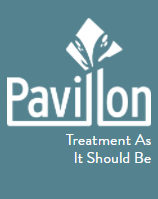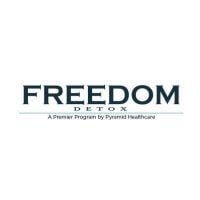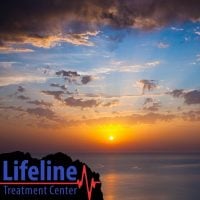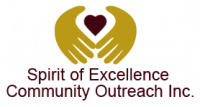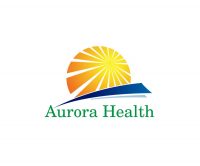Delta Behavioral Health
Drug Rehab Center in Wilmington, North Carolina
Delta Behavioral Health is a comprehensive addiction treatment facility in Wilmington, NC, providing an array of services from Intervention to Aftercare Support for individuals struggling with opioid addiction, substance abuse, dual diagnosis, and mental health.
About This Wilmington, NC Facility
Delta Behavioral Health is a comprehensive treatment facility located in Wilmington, North Carolina. It offers a variety of services to individuals suffering from issues related to addiction and substance abuse. Delta Behavioral Health helps individuals to overcome substance use disorder, providing personalized care plans that address their biological, psychological, and social needs. Their multidisciplinary team of healthcare professionals specialize in treating opioid addiction, dual diagnosis, drug addiction, and mental health disorders. The facility is accredited by the Commission on Accreditation of Rehabilitation Facilities and is licensed by the North Carolina Department of Health and Human Services.
Delta Behavioral Health provides a range of services designed to help individuals in recovery. These include interventions, aftercare support, and various levels of care such as drug rehab, dual-diagnosis treatment, intensive outpatient, partial-hospitalization, and outpatient care. All services are tailored to meet the individual’s needs and take into account their medical, psychological, and social situation. Delta Behavioral Health also accepts private health insurance plans to help cover the cost of treatment. With their highly qualified staff and wide range of services, Delta Behavioral Health is dedicated to helping individuals successfully recover from addiction and substance abuse.
Genders
Ages
Modality
Additional
Conditions and Issues Treated
Substance abuse is the excessive use of any type of drug. This includes alcohol, medications and illegal drugs. Substance abuse is treated with a combination of physical and mental treatments. Delta Behavioral Health patients detox and follow up with therapies that target the underlying cause of the addiction.
Opioid addiction is one of North Carolina‘s most prominent forms of addiction. Drugs, including heroin, oxycontin, and fentanyl, are the most common. To relieve pain, or ease other ailments, they are professionally prescribed, but they are often abused because they and the feelings they give are addictive.
Addiction is treated by detoxifying the body, so the medications’ chemicals are no longer impacting the individual. Delta Behavioral Health offers therapies to correct behavior and target the root of the problem are supplemented during and throughout treatment.
Levels of Care Offered
This center offers a variety of custom treatment tailored to individual recovery. Currently available are Aftercare Support, Drug Rehab, Dual-Diagnosis, Intensive Outpatient, Intervention, Outpatient, Partial-Hospitalization, with additional therapies available as listed below.
Intensive Outpatient Programs (IOPs) are treatment programs suitable for people who wish to stay at home while undergoing treatment. IOPs like Delta Behavioral Health make it possible for individuals to carry on with their responsibilities at work or school, in or near Wilmington, NC. It’s easy to find an IOP center that offers individualized treatment protocols.
In outpatient programs at Delta Behavioral Health, the Wilmington resident can live with their family while continuing with their job or studies. Treatment includes educating the patient on drug abuse, medications, and counseling sessions at the individual or group level.
Partial hospitalization program (PHP) offered by Delta Behavioral Health is an alternate option for inpatient rehabs or residential programs. The patients stay in a Wilmington facility closer to the North Carolina treatment center and attend the different forms of therapy for several hours a day. Treatment duration varies from one to six months.
People involved in substance abuse usually are in a state of denial over the harmful effects of their changed behavior. They believe that they can overcome the addiction on their own. Intervention services in North Carolina offered by Delta Behavioral Health help family members to motivate the affected individual to seek external support.
Aftercare support refers to the follow-up care provided after the initial rehab program. The quality of aftercare support plays an important role in preventing relapses and sustains recovery. Aftercare support at Delta Behavioral Health is personalized according to the needs of the patient in North Carolina.
Delta Behavioral Health‘s Therapies & Programs
Customized individual therapy is counseling involving you and your counselor at Delta Behavioral Health. This builds a personal and trusting relationship so you can truly be yourself and express any emotions as you feel them. Individual therapy leads to greater peace and understanding about your triggers for addiction and coping strategies to prevent relapse.
Substance abuse does a number on an individual’s relationship with other people, particularly in marriage. Spousal relationships bear the brunt of alcohol and drug dependence. Therefore, it becomes critical to submit the relationship to couples therapy to prevent straining it further. Most programs only zero in on the individual with substance addiction without factoring in the importance of the other half’s emotional support.
However, some facilities, like Delta Behavioral Health in Wilmington, North Carolina, offer couples therapy options to manage intimate partnerships amid the recovery process. Other couples-focused treatment plans can provide the patient and their partner tools to get things back to normal, support each other, and the patient’s sobriety.Group Therapy is a type of counseling that occurs between a bunch of strangers. These groups are suitable for patients who are not confined in a treatment facility, but group sessions are also common in inpatient rehab programs. Group therapy is led by a trained individual at Delta Behavioral Health in Wilmington, NC and consists of members from different stages of recovery.
The goal of group therapy sessions is to foster hope and a sense of belonging, share information, and learn coping mechanisms. It also helps to have people who can relate to what you’re going through. Good behaviors can also be contagious, and participants can learn from one another.
Unresolved trauma is often a key reason why many patients resorted to substance abuse. Trauma could be physical abuse, sexual abuse, war, natural disasters, divorce, accident, loss of a loved one, etc. If trauma is the primary cause of substance abuse, then both issues must be addressed.
Dialectical Behavior Therapy (DBT) is an improved version of Cognitive Behavioral Therapy (CBT) DBT is a treatment of choice for people being treated at Delta Behavioral Health whom are suffering from self-harming behaviors. Conditions such as obsessive-compulsive disorder and borderline personality disorder also benefit from DBT.
Cognitive Behavioral Therapy (CBT) is an approach and method in psychotherapy. Delta Behavioral Health asks people to investigate how their thoughts, including habitual, negative, and inaccurate ways of thinking affect behaviors. CBT is based on the idea that rigid, inflexible ways of thinking cause people to have a limited ability to cope with stress
Payment Options Accepted
For specific insurance or payment methods please contact us.
Is your insurance accepted?
Ask an expert, call (888) 674-0062
Additional Details
Specifics, location, and helpful extra information.
Wilmington, North Carolina 28401 Phone Number(910) 343-6890 Meta DetailsUpdated November 25, 2023
Staff Verified
Patient Reviews
There are no reviews yet. Be the first one to write one.
Wilmington, North Carolina Addiction Information
North Carolina ranks 29th in the nation for overall substance abuse. Many of the drugs abused in the state are illicit, and many of these are opioids. Prescription opioids are readily available due to the high rates of medical workers prescribing them. The number of prescriptions has increased tenfold since the 1980's. Opioid overdoses are the most common type of death in North Carolina.
Wilmington, North Carolina has been hit hard by the drug addiction and abuse epidemic. Opioids were involved in 59% of overdose deaths in Wilmington in 2017. 9 percent of the population struggles with drug addiction. From 2012 to 2016, the number of emergency department visits due to heroin abuse increased by 537%. If you or someone you know is struggling with addiction, please don't hesitate to reach out for help.
Treatment in Nearby Cities
- Rockingham, NC (117.1 mi.)
- Kannapolis, NC (177.2 mi.)
- Weaverville, NC (282.5 mi.)
- Carolina Beach, NC (11.5 mi.)
- King, NC (199.1 mi.)
Centers near Delta Behavioral Health
The facility name, logo and brand are the property and registered trademarks of Delta Behavioral Health, and are being used for identification and informational purposes only. Use of these names, logos and brands shall not imply endorsement. RehabNow.org is not affiliated with or sponsored by Delta Behavioral Health.


